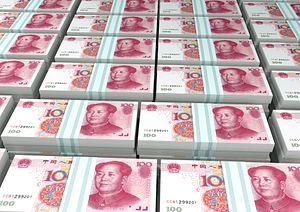When China’s economy started shaking in August, I imagined that it might lead the Japanese government to face the following scenario.
Investors turn to the yen in the search of safer holdings, leading the yen to rise and offset the devalued yen via the Central Bank’s quantitative easing and postponing the goal of two percent inflation even further. Firms remain reluctant to put profits into the Japanese economy, compounded by the stronger yen making Japanese exports less competitive than they were before. Wages stagnate and already-frugal household budgets adjust to the recent (and, for now, forthcoming) consumption tax hike. Japanese voters, frustrated with the stalled economy and with the cabinet’s focus on security legislation relative to economic concerns, let their displeasure show in approval polls, which eventually fall far enough for the government to wonder whether it’s time for a change at the top. The opposition, meanwhile, begins to wonder if it’s time to strike.
While I dismissed that scenario as unlikely, the past two weeks have played out almost as described above, with the yen rising and Japanese firms expressing even more reluctance to reinvest their earnings in wage hikes. Does that mean that the rest of the scenario will play out? And should Japan now fear China’s stock market crash?
On the economic side, there are plenty of reasons to believe things might get worse. Japan’s trade balance has returned to deficit, led by a 3.3 percent drop in exports, the worst since 2012, and the export drop was itself led shipments to China which dropped by 8.1 percent. As emerging economies continue to slow down along with China, it’s difficult to imagine exports rebounding significantly. And that’s before taking into account the appreciated yen, which will make Japanese exports more expensive for foreign markets with less purchasing power than before. Adding premonitions of another 2008 financial crisis from prominent financiers and speculations about a “cataclysmic year” for the global economy from large banks and it seems like the darkest scenarios from last year may have been overly optimistic.
The good news is that Japan isn’t nearly as exposed to China’s slowdown as some of the commodity exporting countries in Africa, Latin America, and Southeast Asia, which are most vulnerable. And while a rising yen might prevent companies from investing in wages, it will also make imports less expensive, which will ease some of the burden on Japanese consumers and keep real wages and purchasing power reasonably level. Even still, while wages may not be growing, the fact that Japan continues to enjoy one of the world’s highest standards of living tampers the potential for overt voter anger over the economy.
Additionally, the Japanese government still has tools to work with. The Bank of Japan showed some creativity in December by offering exchange-traded funds (ETFs) for firms that invest in capital and labor as a way of encouraging firms to begin using their cash. While there hasn’t been enough time for ETFs to have an effect, the BoJ’s decision shows a willingness to be proactive in stimulating the economy. While Prime Minister Shinzo Abe has promised to move ahead with the consumption tax hike, currently scheduled for April 2017, he has suggested postponing it if “it is deemed to cause a serious damage to the economy to the tune of the Lehman shock” of 2008, giving himself some room to maneuver if he needs it. Members of the Diet talk comfortably about having plenty of other cards to play in case the economy finds itself in trouble. None of this makes Japan immune to shocks or slowdowns, but the fundamental reality is that Japan’s economic future will still be guided by decisions in Tokyo before those in Beijing, Shanghai, or elsewhere.
But it’s the political aspects of the scenario where the Abe administration should feel most secure. While the protests in front of the Diet against the security legislation drew global media attention, the cabinet’s approval ratings have rebounded roughly to where they were before the summer protests (and approval ratings never really dropped to a “crisis level” for the cabinet in the first place). On top of that, Japan’s opposition parties have not only been unable to create sustained opposition to the security legislation, they’ve barely been able to sustain themselves. The possibility of a merger or increased cooperation between the Democratic Party of Japan and the Communist Party has alienated the DPJ’s conservatives, who have even gone so far as to demand that the party be dissolved, while the Japan Innovation Party has been racked with divisions between its local Osaka branch and national branch, with each pole of the (former) JIP gravitating towards a different party at the national level. Meanwhile, the LDP’s leadership election in September demonstrated that Abe has no challengers within his party capable of or interested in challenging him.
So even if 2016 proves to be a cataclysmic year for the global economy, the worst-case scenario for Abe described is still unlikely and only possible if Abe and the LDP decide to snatch defeat from the jaws of victory, something that their usual caution will likely prevent. Given the unstable political situations (Spain) and populist mood swings among major democracies (United States), having stable political leadership in Japan is a unique luxury among large economies. If Japan can use that stability to promote domestic growth and global economic governance standards, then so much the better — they may be one of the few capable of doing so.
Paul Nadeau is an independent writer based in Tokyo, Japan.

































